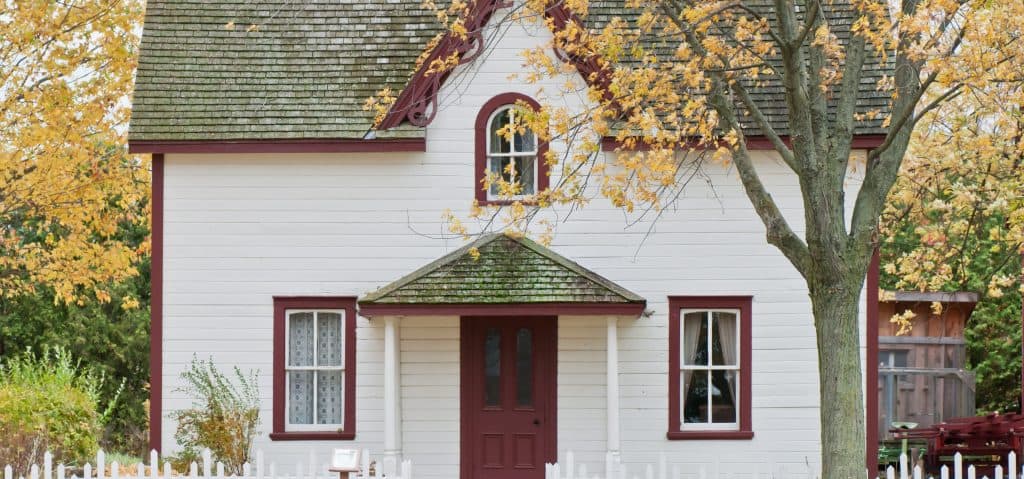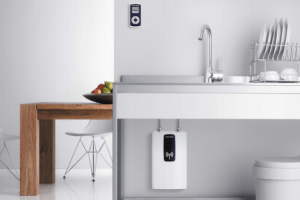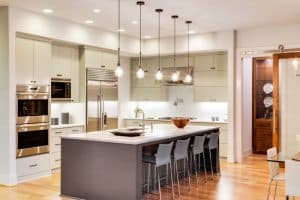We may have reached our final month of Summer, but these heatwaves have sparked a question in the minds of many UK residents: should we buy an air conditioning system next year? We understand why it may be tempting to install them into your home for next year. But, would your UK home benefit from air-con?
If you do choose an air conditioning system, you will need to ensure that it meets your requirements. This is a particularly important factor given the running costs. Air conditioning systems do tend to be energy efficient, but they are quite dependent on your electricity supply, which can run up your bills. So, if you still want to invest in air conditioning for your home next summer, here are some options available. We will also look at the pros and cons.
Portable Units
If you only need to keep the room cool from time to time (which is more likely in the UK), you may wish to consider a portable unit. This could be either an evaporative cooler or portable air conditioner. Evaporator coolers are quite energy efficient as they blow air through water that evaporates. This then introduces a cooling effect. However, this isn’t as useful for UK homes as the air needs to be dry in order to be effective.
For UK homes, refrigerant-based air conditioning units would be best. However, they do require more power. You will need to keep a window open to vent the heat, which could be a security risk and may also be quite loud.
Domestic Air Conditioning Options
Installed systems usually have an outdoor unit with a fan. This connects to an indoor unit via two insulated pipes that contain refrigerant. The indoor units are available in various configurations:
- A high wall unit that is mounted onto the wall.
- Low wall units that have similarities to standard radiators
- Ceiling cassettes that can be mounted into the ceiling in the middle of a room
- Hidden slim-ducted units that can be placed in the ceiling or grill boxes above cupboards or doors.
Ducted units also have the ability to move air throughout various ducts and outlets, with separate dampers in each duct. This will allow each room to have separate control over the airflow. These ducts may be insulated to avoid condensation.
Domestic air conditioning systems also have various levels of complexity.
- Single room air conditioners are designed to have only one outdoor unit and one indoor unit.
- Split air conditioners come with one outdoor unit, with multiple indoor units. They are either all on or all off, making them ideal for single large rooms.
- Multi-split has one outdoor unit and up to eight indoor units. Each unit can be individually controlled, making it ideal for multiple rooms in the home.
Air-to-Air Systems
Systems that are designed and use mainly for heating are often known as air-to-air heat pumps. If cooling is required, they should be able to reverse the refrigeration cycle. Vapour compression cycles offer 300% efficiency, making it a better form of heating than direct electric.
These are often installed as secondary heating systems. Air has the specific heat capacity of one, unlike denser products that have higher specific heat capacity. Air can then heat and cool down faster with the same amount of energy transfer.
The primary heating system can connect to underfloor heating, which is slow to react. This means the air-to-air system can boost the temperature on demand. This may be useful for homes that have an office or rooms that are only used on occasion.
Find the perfect Air conditioning system with ABM
Modern homeowners are quite tempted by the idea of installing air conditioning systems, and we can see why. Of course, with them being quite a big investment, it’s important to buy the best product for your home. At ABM Electrical Wholesale in Stockport, we can help find what you need. Get in touch to learn more about our products.
Disclaimer: All air conditioning systems must be installed by a qualified engineer.





